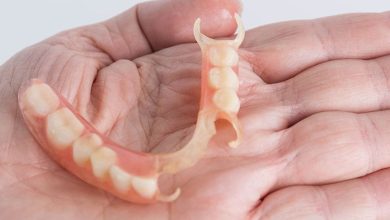

Nausea is the sensation of an urge to vomit. Nausea can be acute and short-lived, or it can be prolonged. When prolonged, it is a debilitating symptom. Nausea (and vomiting) can be psychological or physical in origin.
Dehydration can cause nausea and dizziness. The nausea may lead to vomiting. This makes you lose even more water, worsening symptoms. Nausea may also be linked to low blood pressure caused by dehydration.
Table of Contents
Causes Nausea:
- Chemotherapy.
- Gastroparesis (a condition in which the muscles of the stomach wall don’t function properly, interfering with digestion)
- General anesthesia.
- Intestinal obstruction.
- Migraine.
- Morning sickness.
- Motion sickness: First aid.
- Rotavirus.
HOME REMEDY FOR NAUSEA
1. Slice a Lemon
Citrusy smells, such as those from a freshly sliced lemon, may help reduce nausea in pregnant women.
In one study, a group of 100 pregnant women were instructed to inhale either lemon or almond essential oils as soon as they felt nausea.
At the end of the 4-day study, those in the lemon group rated their nausea up to 9% lower than those given the almond oil placebo.
Slicing a lemon or simply scratching its peel may work in a similar way because it helps release its essential oils into the air. A vial of lemon essential oil may be a practical alternative to use when you’re away from home.
2. Control Your Breathing
Taking slow, deep breaths can also help reduce nausea.
In one study, researchers attempted to determine which aromatherapy scent was most effective at reducing nausea following surgery.
They instructed participants to breathe in slowly through the nose and exhale through the mouth three times, while exposed to various scents.
All participants, including those in the placebo group, reported a decrease in nausea. This made the researchers suspect that the controlled breathing may have provided the relief.
In a second study, researchers confirmed that aromatherapy and controlled breathing both independently relieve nausea. In this study, the controlled breathing reduced it in 62% of cases.
The breathing pattern used in this last study required participants to inhale through their nose to a count of three, hold their breath to a count of three, then exhale to a count of three.
3. Try Relaxing Your Muscles
Relaxing your muscles may help relieve nausea.
One technique people have used to achieve this effect is known as progressive muscle relaxation (PMR). It requires individuals to tense and relax their muscles in a continuous sequence as a way to achieve physical and mental relaxation.
One recent review found that PMR is an effective way to reduce the severity of nausea resulting from chemotherapy.
Another way to relieve muscle tension is through massage.
In one study, a group of chemotherapy patients were given a 20-minute lower arm or lower leg massage during their treatment.
Compared to those given no massage, the massaged participants were about 24% less likely to get nauseous afterward.
4. Peppermint Aromatherapy
Peppermint aromatherapy is another alternative likely to help reduce nausea.
One study assessed its effects in women who had just given birth by C-section.
Those exposed to a peppermint smell rated their level of nausea significantly lower than those given anti-nausea medications or a placebo.
In another study, peppermint aromatherapy was effective at reducing nausea in 57% of cases.
In a third study, using an inhaler containing peppermint oil at the onset of nausea reduced symptoms — within two minutes of treatment — in 44% of cases.
Some propose that sipping on a cup of peppermint tea may have similar anti-nausea effects. Yet while you have little to lose by giving peppermint tea a try, there are currently no studies that confirm its effectiveness.
Peppermint oil taken in pill form has shown mixed results. Some studies show benefits, while others find no effects.
What’s more, little information exists on the safety of ingesting peppermint oil.
For this reason, more studies on peppermint pills are needed before strong conclusions can be made. However, smelling peppermint oil should be perfectly safe and seems to work in about half of people.
5. Eat Ginger
Ginger is a popular natural remedy commonly used to treat nausea.
The way it works is not yet fully understood. However, experts believe that compounds in ginger may work in a similar way to anti-nausea medications. In fact, several studies agree that ginger is effective at reducing nausea in various situations.
For instance, consuming ginger may be an effective way to reduce nausea during pregnancy.
Ginger may also be effective at reducing the nausea people commonly experience after chemotherapy treatment or an operation.
Some studies even report ginger to be as effective as some prescription medications, with fewer negative side effects.
There is no consensus regarding the most effective dosage, but most of the studies above provided participants with 0.5 to 1.5 grams of dried ginger root per day.
Ginger use is safe for most people. However, you may need to limit your ginger intake if you’re prone to low blood pressure or low blood sugar, or if you’re taking blood thinners.
Some experts also question the safety of eating dried ginger during pregnancy.
While there are only a small number of studies on ginger, the ones performed on healthy pregnant women report a low risk of side effects. Thus, most experts consider ginger to be a safe, effective remedy during pregnancy.
For any important information please contact us Email GadgetsNg info@gadgetsng.com
[Button id="1"]




I have read so many posts on the topic of the blogger lovers however this
post is really a nice paragraph, keep it up.